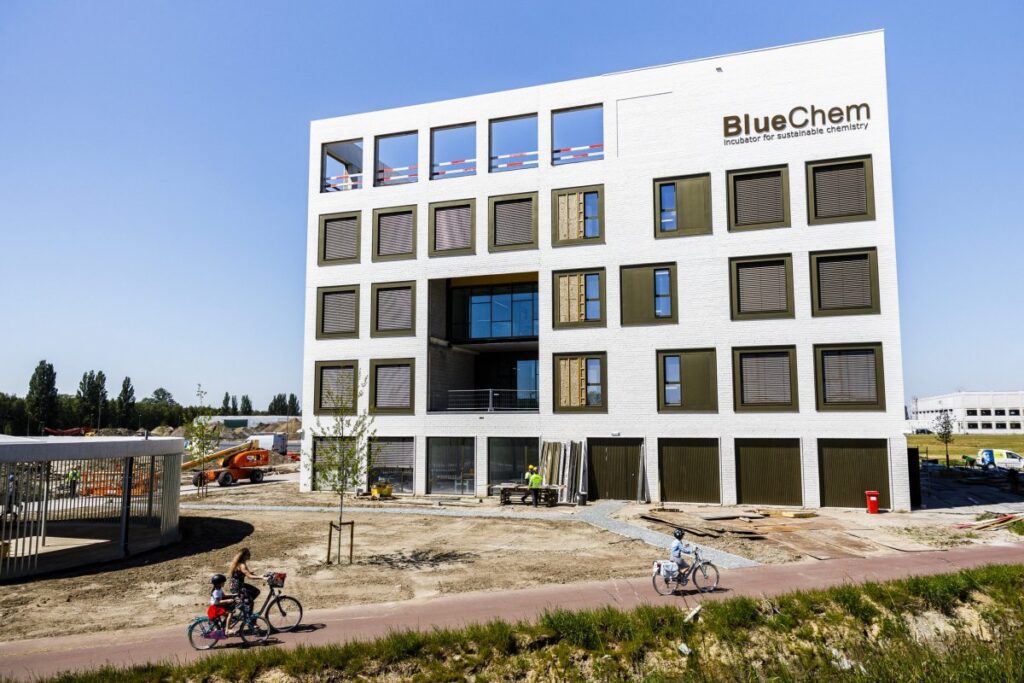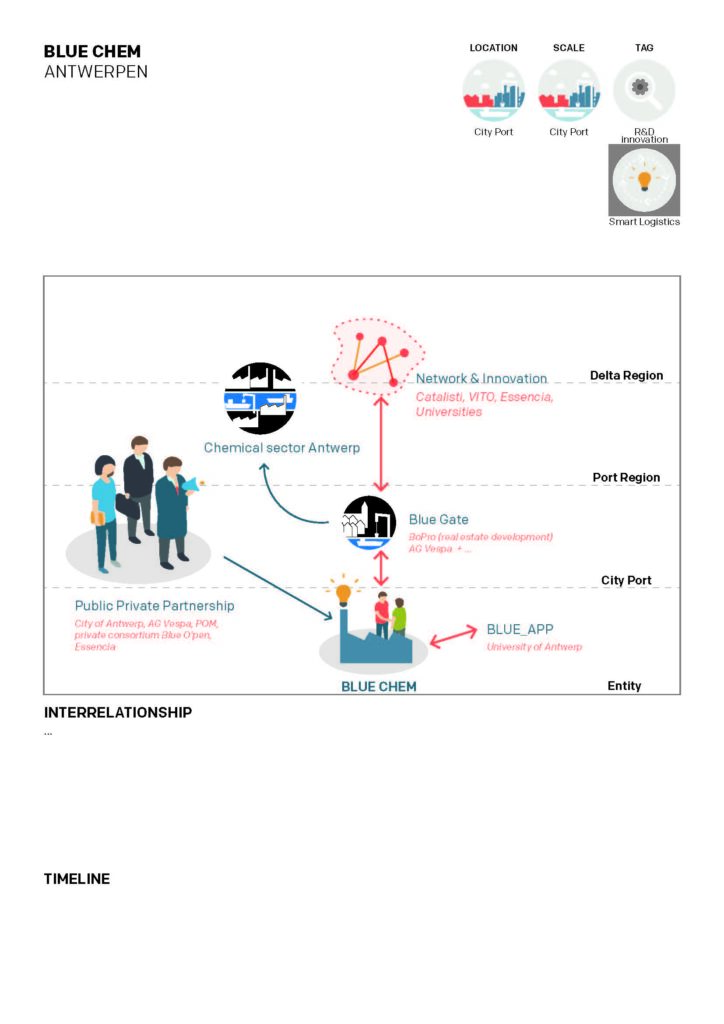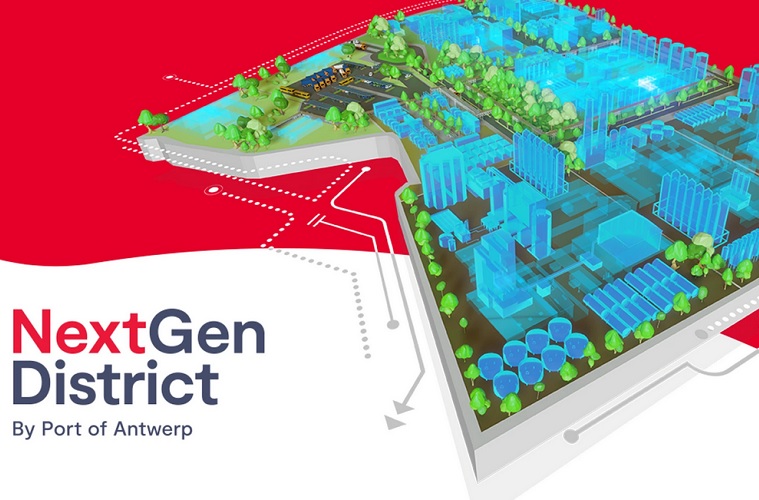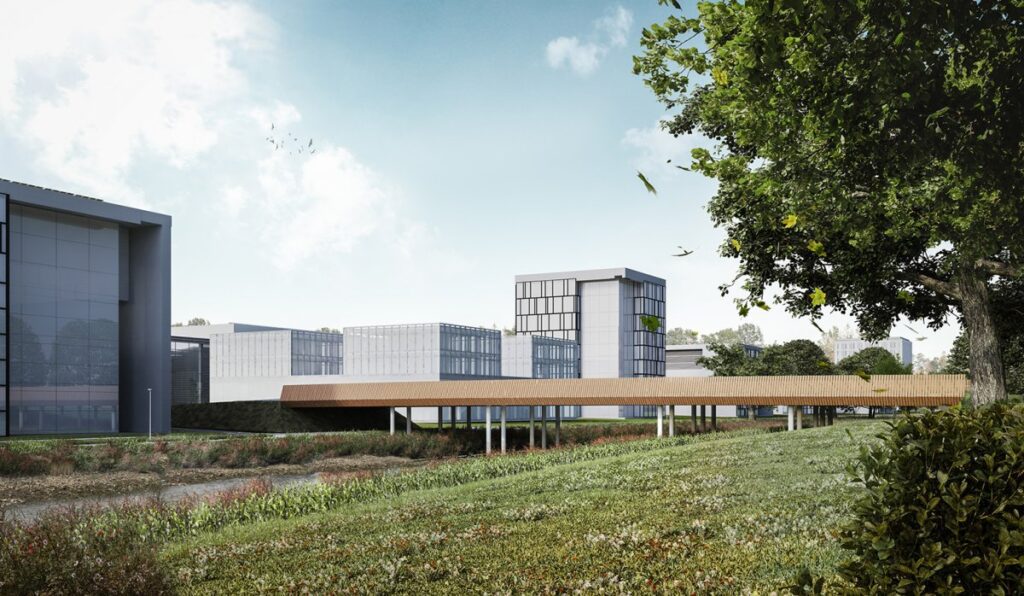A unique collaboration between industry, government and knowledge institutions
What’s happening? How does it happen?
The incubator will cover more than 3300 m², cost around 11 milllion euro and will provide a mix of flexible workspaces for starters and individual offices and laboratories for SMEs, sub-projects of large companies and knowledge institutions. The incubator will contain all connections to set up laboratories, the so-called ‘plug-and-play’ model. Here, renewable chemicals and the valorisation of waste and residual streams are approached in relation to the large scale industrial processes of the port.
Helping emerging companies to develop sustainable innovations for the chemistry of the future. That is the goal of the BlueChem incubator, a unique collaboration between industry, government and knowledge institutions.
Why is this an interesting circular initiative for ports?
The location makes it an interesting site to establish synergies and connections between companies and larger context. The coalition and clear ambitions for this large site could have sufficient leverage power for new trends of development and programming. However, the selection parameter (and rent-prices due to the high-performance of the built fabric) are of high-standards, making it hard to find companies that can fulfill these ambitions.
What is the relation with the port and water?
The port of Antwerp has one of the biggest chemical clusters in the world. The sector accounts for one third of the added value, one third of the exports and almost half of all industrial expenditure on research and development in Flanders. The incubator tries to provide an innovative environment, connecting knowledge networks with these internationally operating chemical companies.
What is the relation with the city?
No direct links or synergies are created with the surrounding city.
What are the ambitions?
To accelerate the transition of the chemical industry to a more sustainable circular operation. To connect new innovations (coming from knowledge institutes) with the existing chemical companies active in the port. The target group consists of start-ups and innovative SMEs with growth potential. In the chemical industry in particular, start-ups often encounter difficulties in bridging the so-called ‘valley of death’, the high-risk period between the development phase of new ideas and effective industrial production.
Who is behind it?
Knowledge institutes, industrial federations and public partners. Through a PPP, with public partners AG Vespa, PMV, city of Antwerp and POM Antwerpen working together with the consortium Blue O’pen, Essenscia (federation chemistry) and knowledge institutes like VITO and universities. Catalisti, the new Flemish spearhead cluster for chemistry and plastics, is taking an active role in BlueChem to start up and support new promising innovation projects. There is also an important synergy with Blue_App, an open innovation hub for research projects of the University of Antwerp in the field of sustainable chemistry.




